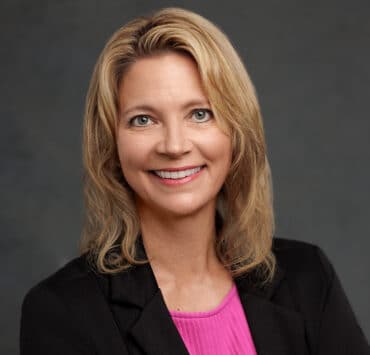Last year, as the public attempted to gain a new sense of normalcy, supply chain transportation systems around the country struggled to respond to demand from the consumer market. Tied-up shipping containers, backed-up shipping ports, and labor shortages are projected to continue to disrupt supply chains for some time to come. In addition, inpatient surges and supply shortages are striking our healthcare systems as the COVID-19 pandemic continues.
“Being in a pediatric hospital, we see children from the size that you could hold in your hands up to large adults—we need to have a variety and range of products,” says Greg Beach, chief procurement officer at Seattle Children’s Hospital.
Beach oversees all strategic sourcing, sterile processing, inventory, and distribution of supplies and equipment throughout the hospital. Amidst the many challenges of the pandemic, he believes in leading teams in a positive and calming way.
“Your team feeds off your style. If you’re calm, it brings a sense of reassurance that we’ll get through this,” Beach says. His team-centered mentality, passionate leadership, and commitment to innovation led to him being recognized by Global Healthcare Exchange as one of 2021’s top ten inspirational leaders in healthcare supply.
In addition, Beach’s teams have produced world-class quality and safety outcomes. Their teamwork was recognized by Seattle Children’s with the David Fisher Award for Excellence in Safety.
The hard work and determination of Beach’s group of directors inspires him. “I love the fact that we’ve built a wonderful team of leaders that are committed to the work and not just coming for a paycheck. It’s always about what’s best for the patient,” he says.
Beach first joined the hospital twenty years ago as the manager of clinical engineering. His transition into supply chain came about organically through his partnership with his executive leaders. A few years later, he stepped in as the director of the inventory distribution team and was then promoted to senior director before taking on his current role as chief procurement officer.
As Beach rose through the ranks, the department was beginning to adopt Lean methodology, an evolution of the Toyota Production System. For training, Beach went to Japan for two weeks, where he visited the Toyota production site and other plants that employed the Lean system. Since then, Beach has led the transformation of the Seattle Children’s supply chain by applying Lean methods to healthcare to support the hospital’s frontline staff.
“What we’re trying to do is eliminate waste in the way we take care of patients, reduce mistakes, and cause no harm. Mistakes happen when you stop what you’re doing and do something else. The clinical teams rely on having the supplies and equipment to do their job without needing to search for items. Our goal is to provide the items they need to take care of the patient at the bedside with minimal distractions,” Beach explains.
In 2008 Beach introduced a new system called Demand Flow, developed in partnership with the clinical teams and built around the needs of the nursing staff. The system has saved more than eighty thousand total system labor hours annually by reducing time spent managing supplies. In the first year alone, they saved $2.5 million worth of supply costs by eliminating unused products.
In 2013, the Building Hope delivery system went live with a focus on supporting bedside staff. Through a streamlined process called “buses and taxis,” where the team delivered medication, supplies, and equipment directly to the rooms of patients across six floors of the hospital, Seattle Children’s was able to achieve a 50 percent reduction in clinical travel and search time for products.
“My goal is to allow the clinical teams to deliver world-class care to our patients, without the need to search for equipment and supplies,” Beach says.
Beach is excited to apply these systems to the design of a new Seattle Children’s building, which will open its doors in April 2022 after three years of preparation. It will include a Cancer and Blood Disorders Center unit, a pharmacy, laboratory, two floors of operating rooms, and adjacent sterile processing and supply chain areas.
Beach is also looking forward to seeing his team grow. “Seattle Children’s is on a mission—we want our staff and suppliers to model our diverse patient population,” he says. Beach has built a team that’s two-thirds minorities and women; half of the leaders are also women or minorities. Beach has most recently hired a new manager of supplier diversity that will work to align their business needs with women- and minority-owned businesses.
“The increased diversity in our staff and leaders has helped us to look at the way we write policies and to understand that we come from very different backgrounds—not every patient has the same resources or understanding,” he says. “I think it’s compelling to see somebody of your race, gender, or physical ability being successful. It gives people hope that they can be a professional and make the world better.”
Belimed Inc. is a global supplier of medical and surgical instrument sterilization, disinfection, and cleaning products and services for sterile processing departments. Our integrated sterile workflow solutions include planning and design, market-leading equipment, consumables, servicing, data connectivity, education, and training help protect patients and staff. For more info visit belimed.com.
Aesculap, Inc. congratulates Greg Beach at Seattle Children’s on this well-deserved recognition. Aesculap offers a full range of products and services designed to help hospitals optimize their perioperative performance, identify potential areas of improvement and help health systems Operate With Greater Precision.


